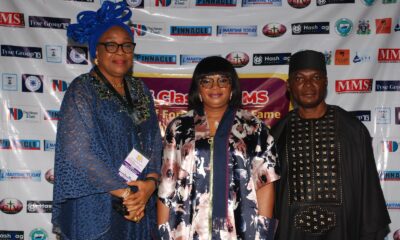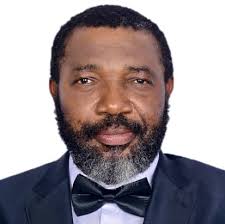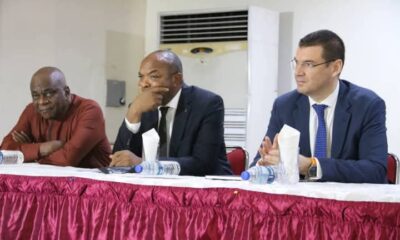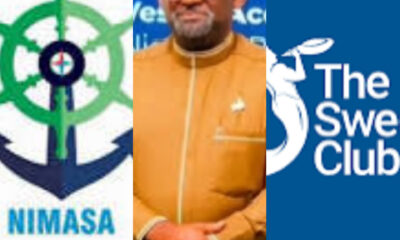Business Focus
Experts, stakeholders disagree on endless port blueprint collabo
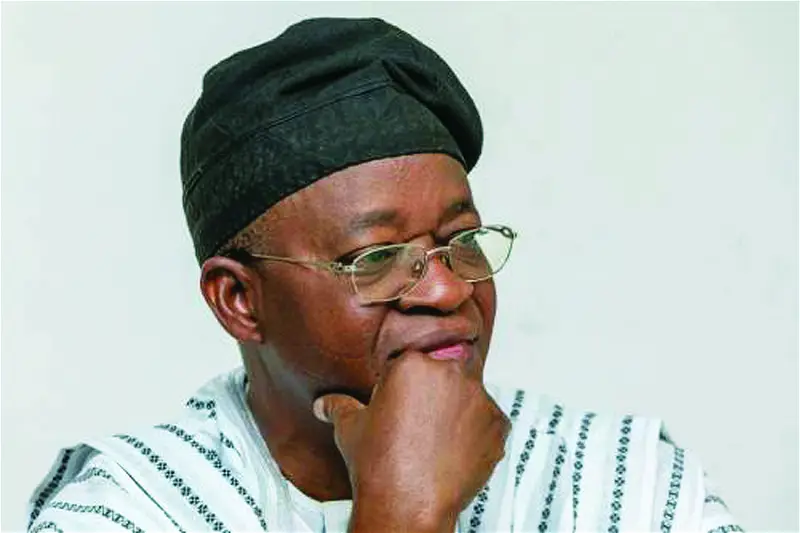
BY EGUONO ODJEGBA
Players and experts in the maritime and ports industry recently disagreed on whether it is right for agencies of government to continue engaging for the purposes of generating fresh ideas and input on critical industry policy formulations; as against the implementation of proposals of consequential blueprints gathering dusts in government offices.
While ruminating on industry policy directions such as the Single Window, CVFF, Ease of Doing Business, Port Efficiency, Port Community System, High Port Trade Levies, Trade Facilitation, Cargo Scanners, PEBEC etc in an informal engagement, the experts and stakeholders posit that what is required is the political will by this government to implement the myriads of heaps of reports and recommendations already generated in the past.
But some of the policy implementers and sympathizers say there is nothing wrong with continuous collaboration. This is even as those against lamented that whereas the endless inter-agency collaboration have become a mere official culture which has failed to impact the national growth project or give it positive outlook; they urged the government of the day to clean up past reports/recommendations and commence their implementation.
Coming on the heel of a recent meeting between the Nigeria Customs Service (NCS) and Nigerian Ports Authority (NPA) aimed at achieving seamless port operations and service delivery efficiency, a maritime security expert, Captain Warred Enisuoh said what is required at the present time is a standard operating procedure (SOP) which all agencies and departments of government should key into.
He said without an enabling SOP which will serve as a roadmap, collaborations on the basis of independent single window will remain counterproductive.
He said, “64 years out of independence, we are still deepening collaboration. By now, there should be documented processes and procedures CAST IN STONE, on how the Agencies should work together for the benefit of the nation.
“No country running organisation and parastals on individual styles and perceptions will ever make progress. Every one of the related organisations must have a STANDARD OPERATING PROCEDURE MANUAL that clearly states the relationship, areas of collaboration and information sharing between the organisations.
“In that way, new appointees find it easy to settle in without “UNSETTLING” the industry when trying to find their feet on the ground, instead of hitting the ground running”, he enthused.
Captain Enusioh urged policy formulators and implementers to cultivate the culture of having a seamless, operational synergy which departments and agencies, irrespective of those occupying such offices can fall back for enhanced productivity.
He said, “I became an Instructor, training new Staff in the Australian Maritime Safety Authority in less than 18 months of employment. Everything on how the Australian Maritime Safety Authority works and relates with Customs, the Navy, the Air force, etc and where to get information on what to do in every scenario possible, IS WRITTEN”, and waxing philosophical, adds:
“You can only get a country you build and not a country you want.”
Corroborating, an erudite industry practitioner who does not want his name in print noted that whereas the Nigerian Ports Authority (NPA) has designed a port single window framework, other agencies he says, rather than key into the system are expressing fears, and seeking to develop individual standards that shies away from the central port window.
“Some still ask NPA, what is an SOP? What is the purpose? You explain and explain, some would tell you that NPA wants to usurp their functions; by simply telling them to develop SOP.”
Also speaking, Customs Area Controller of Tin Can Island Port, Comptroller Dera Nnadi mni argued that there is nothing wrong with continuous collaboration, while implementation of approved recommendations are ongoing, noting that since development is dynamic, there would always be a meeting point of all the efforts.
Nnadi explained that the recent removal of obstructions from the Mile 2, Tin Can Port access road is an example of robust collaboration. Life is dynamic. United Nations was founded in 1945. The nations there still meet, collaborate. How do you see the recent intervention on the Port Access Road, which for close to 10 years was inaccessible? Let’s talk about how to sustain that feat achieved through collaboration.

“The Nigerian Port Process Manual produced by the NPA in collaboration with sister Agencies is a step in the right direction.”
The cerebral customs officer and amiable goal getter said there is no basis for stakeholders to say that until past blueprint reports and recommendations are implemented; newer engagements should be discontinued.
“I disagree with their position. You cannot rule out dialogue in human existence. UN, OAU, ECOWAS, NASS are all platforms for dialogue. Are we getting results from the maritime and port dialogues? Yes we are. I have been around for sometime in the industry. Port concession, the present NIMASA, NCS various reforms from Long Room to NICIS are products of reforms.”
Commenting, front line freight forwarder and maritime resource persona, Dr. Eugene Nweke argued that whereas a convergence of trade procedure spelt out in the NPA Port Community is essential if the nation must make progress in its port operational outlook; the customs administration remains central and should be allowed to engage always.
“Dialoguing over research works, new operational impediments, system study outcome, policies effects and industry emerging trends, is not the same as re-conferencing or re-dialoguing industry issues which solutions has been proffered over time.
“Instead of exerting political will for effective implementation, a consistent repeat is tantamount to waste of both resources and energy and time. The position here is to promote executive reviews of relevant recommendation as it relates to a particular industry issues and not re-convergence for a fresh dialogue.
“The NPA effort of birthing an Automated Commercial Environment – ACE ( aka SOP) in the hope of the speedy evolution of a National Single Window ( NSW) is commendable. While it is true that the ACE (SOP) aids collaborations amongst the agencies in the port value adding supply chain, however, in the context of custom operations collaboration is relative.
“This is because by the complex environment in which the customs discharges its functions, collaborations now transcend to strategic and responsible partnership. This is because it is one thing to share data and information; it is another thing to deploy resources.”
Nweke also argued that the SOPs are not completely reliable.
“As commendable as the SOP is in the port system, its lacks the capacity to address the ever changing activities of the international trade and their increasing red tapes; and deliberate technical barriers. Thus, the driving spirit behind the WCO 3Ps – People, Partnership and Political support.”
Also speaking, a journalist who does not wish to be identified thumbed up the political strategy of President Bola Tinubu for providing a policy direction with the phased implementation of the Steve Oransanya Report.
“We must go beyond this preposterous running around in circles and give collaborations the essential depths and meaning. Former President Buhari and President Tinubu ministers have enough documents and recommendations to work with. It is lacking in continuity for each regime to want to devise its own collaboration on policy issues which already have beautiful blueprints.
On his part, Kingsley Anaroke, publisher of the very informative MMS Newsmagazine said that whereas collaboration is instructive, doing amid the heaps of existing policy recommendation on the same issues is begging the matter.
He posits that a hope agenda must be structured in practical formats such that engenders reassurance and not detrimental to the past and future; further noting that our operating environment appears hostile to workable solution.
“Now, with these variables as stumbling block to genuine efforts always, it is hopeless always believing there is hope. The operating environment is so evidently toxic that even the operators sing hope in hopelessness. How measured is this hope that we talk about?
“The mere realization that the situation here is peculiar triggers defeat and hopelessness because the agencies and players always raise those red-flags at their point of action even with the written SOP. I think that hope in Nigerian context evokes a different meaning.”

